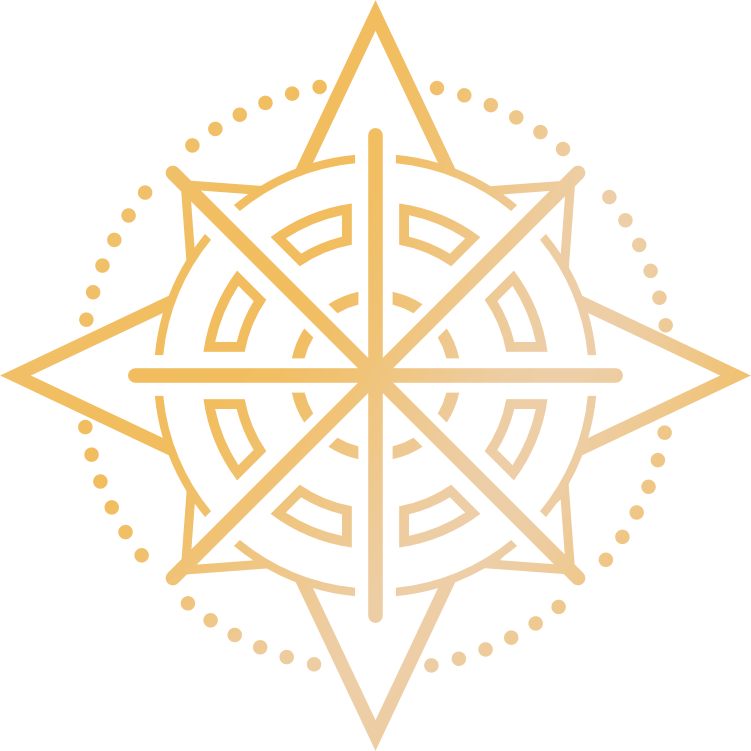King of Pentacles
The King of Pentacles is a card that immediately brings to mind images of stability, groundedness, and mature leadership. Unlike other figures in the Pentacles suit, this King is not just about acquiring wealth or material comfort; he is about what you do with those resources, and how you grow into a reliable, supportive presence for yourself and others.
Understanding the King of Pentacles: Context and Symbolism
In classic tarot imagery, the King of Pentacles sits confidently on his throne, surrounded by lush vines and symbols of prosperity. His robe is adorned with grapes, a symbol of abundance, and in his hands, he holds a golden pentacle—a coin representing material resources, security, and the fruits of steady effort.
The King of Pentacles invites us to reflect on our relationship with security, responsibility, and the ways we nurture both our outer and inner resources.
This card is less about sudden success and more about the slow, intentional building of a stable foundation. It encourages us to consider: How do I create security in my life? How do I show up for others in a supportive, dependable way?
Core Meanings: Upright and Reversed
Upright King of Pentacles
- Stability and Security: You have, or are cultivating, a strong sense of groundedness. This can show up as financial stability, emotional maturity, or a reliable support system.
- Leadership and Responsibility: The upright King is a natural leader—not through dominance, but through wisdom, patience, and consistency. He leads by example.
- Generosity: There is a giving spirit here—helping others, sharing resources, or mentoring those who need guidance.
- Practical Wisdom: You approach challenges with a calm, practical mindset, balancing ambition with caution.
Reversed King of Pentacles
- Insecurity or Instability: You may be feeling ungrounded or unable to provide for yourself or others in the way you’d like.
- Overemphasis on Materialism: Sometimes this card warns against placing too much value on possessions, status, or outward success, at the expense of inner well-being.
- Rigidity or Stubbornness: The reversed King can become unwilling to adapt, clinging to old habits even when they’re no longer useful.
- Neglect of Emotional Needs: Focusing so much on the material world that you forget to nurture your emotional self or relationships.
Psychological and Self-Development Perspective
Viewed through a psychological lens, the King of Pentacles embodies the archetype of the “good parent” or “wise elder”—an inner part of you that knows how to care, provide, and create order. This card can highlight your relationship with authority, both external (like bosses or societal expectations) and internal (how you self-regulate or set boundaries).
It’s not about perfection or having everything figured out. Instead, it’s about learning to trust your ability to make steady, thoughtful decisions, even under pressure. The upright King encourages you to recognize and strengthen these qualities in yourself. The reversed King invites you to notice where you might be undermining your own stability—perhaps through self-doubt, avoidance, or a focus on “having enough” to the detriment of other needs.
Common Psychological Themes
- Security versus Freedom: Are you holding onto structure so tightly that you’re missing out on growth or possibility?
- Self-Worth: Is your sense of value tied too closely to your achievements or possessions?
- Caregiving: Do you offer support to others as well as to yourself? Or do you neglect your own needs in the process?
“Stability is not the absence of change, but the ability to adapt and thrive within it.”
Applying the King of Pentacles in Modern Life
The King of Pentacles is deeply relevant in a world where uncertainty and change are daily realities. By focusing on what you can control and nurturing your strengths, you create a sense of empowerment—even if everything around you feels unpredictable.
At Work
- Model steady, ethical leadership—be the colleague others rely on.
- Balance ambition with patience; remember that sustainable success is a marathon, not a sprint.
- Practice gratitude for the resources and skills you have developed.
In Relationships
- Be generous with your time and attention, not just material gifts.
- Set healthy boundaries to protect your energy and well-being.
- Recognize and celebrate the small ways you support loved ones.
For Self-Development
- Notice where you feel most secure in life. How can you expand that feeling?
- If you feel unstable, identify small, practical steps to create more order—like organizing your space or setting a budget.
- Reflect on how you define “success.” Does your current definition serve your deeper values?
Concrete Steps and Exercises
1. Grounding Practice
Take five minutes to sit quietly, feet flat on the floor. Imagine roots growing from your feet into the ground. Breathe deeply, focusing on the sensation of stability and support. Ask yourself: What helps me feel grounded?
2. Self-Inventory
Write a list of your current resources—not just money, but skills, relationships, and personal strengths. Acknowledge each one with gratitude. Consider: How can I use these resources more mindfully?
3. Reframing Security
Notice if you’re equating security only with material things. What other forms of security nourish you? Emotional safety? Sense of belonging? Make a plan to strengthen one of these areas in the coming week.
4. Boundaries Check-In
Reflect on your boundaries—are they too strict or too loose? Where might you need to adjust, either to protect your energy or to allow more connection?
Tip: Even small, consistent actions can lead to a greater sense of stability and self-trust.
In Summary
The King of Pentacles is a reminder that true security is built over time, through mindful choices, self-awareness, and steady care. Whether upright or reversed, this card invites you to nurture your inner resources, lead with patience and generosity, and create the kind of stability that supports both yourself and those around you.
Tarot is not fortune-telling — it’s a mirror for reflection and growth.
Understood! The article is complete and no further continuation is needed.
